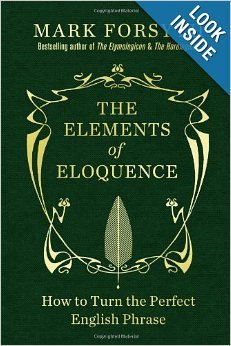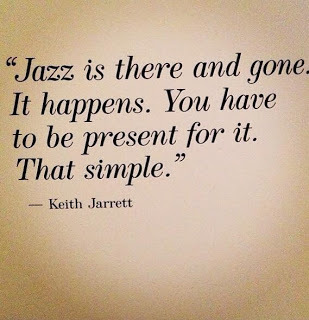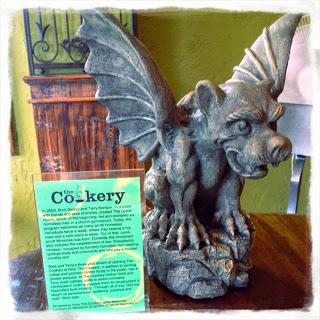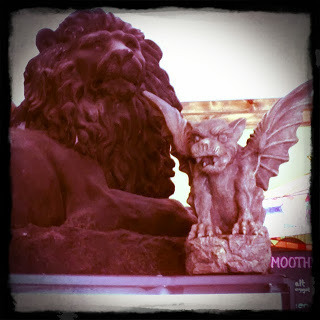Amy Neftzger's Blog, page 6
February 20, 2014
On Negative Reviews
Very few people are familiar with the name of Rufus Griswold. On the other hand, there are also very few people who don’t know the name Edgar Allan Poe. The irony is that much of what the average person “knows” about Poe was written by Griswold and these fictions, which appear to have been intended to harm Poe’s reputation and destroy his literary legacy, only served to increase Poe’s popularity. The dark descriptions Griswold wrote about Poe being an individual of poor character actually drew more interest in Poe’s work. This strategy of slander backfired and today most people know Poe’s name and literary work while Griswold is all but forgotten.
Certainly, there are a lot of mysteries surrounding Poe and his death, but the biography Griswold wrote adds another layer of darkness that further obscures the truth. In fact, we can’t even be certain that Poe would disapprove of the false accusations, given how much it has brought attention to his own work. However, it brings to mind some of the reviews that I’ve seen authors giving other authors on retail and book related sites. It’s not uncommon for some authors to give low ratings or write unfavorable reviews for books that may compete with their own books for readers or market share.
Like most literature enthusiasts, I enjoy some books more than others. However, if I read a book that I don’t like, I simply don’t review it. Just because a book doesn't appeal to me doesn't mean that it was a bad book. In fact, more often than not, the reason I don’t enjoy a book is because it’s not relevant to me at the point in my life in which I read it. That doesn’t mean that the book would never be relevant or didn’t have the potential to take on meaning for me at a different point in my life. A reader’s experience is subjective and may be completely irrelevant to the quality of a book. Therefore, it’s important to explain why a book appealed to you in a positive review and carefully choose your words if you decide to write a negative review. But even well written negative reviews can reflect poorly on the reviewer.
Negative reviews often tell you more about the reviewer than the book being reviewed. Dislike for something that is strong enough for a reviewer to take the time to record it publicly tells you what’s important to the reviewer or where the reviewer struggles. Negative reviews are also frequently emotionally charged, thereby giving hints to the reviewer’s real issues. These are often unrelated to the book and more likely related to the subject matter or something about the author that reminds the reviewer of someone else. In the case of Griswold and Poe, Griswold’s real issue appears to be one of jealousy.
This brings about another important issue of authors writing negative reviews of another author’s work. Remember that your criticism isn’t simply evaluating the author’s writing: it is actually far more critical of the publisher’s and editor’s work. It’s the editors who determine if a book is well written enough to be published and who are also responsible for catching many of the issues that you may be criticizing. I’ve spoken with more than one editor who has said that they refuse to work with authors who write scathing reviews of other authors’ works because they feel that these individuals tend to have difficult personalities. So before writing a negative review, think twice about how it may reflect upon you. You could hurt your own chances of eventually getting published because, as one editor put it: “No one wants to work with a know it all, and people who constantly criticize others give the impression that they think they know everything. I don’t have time to deal with someone like that.”
Today when I read strongly negative reviews I’m often reminded of Poe and think, “something that evokes so much hatred must be worth reading.” Hatred isn’t a neutral reaction. In fact, some people argue that hatred is not the opposite of love and that indifference would be the true contrasting reaction. More often than not, truly bad books are simply ignored by the reading public because they aren’t recommended. It stands to reason that if someone takes the time to write a negative review in order to deter others from reading the book, that it was done for a reason.
Hatred is counterproductive on so many levels, and allowing your disdain for someone else’s writing could cause you to lose readers. Most people feel that individuals who need to push others down in order to lift themselves up probably don’t need to be elevated at all because they’re not demonstrating that they have anything worthwhile to say. After all, the main purpose of writing is to say something that’s worth reading. So instead of writing negative reviews, try expressing appreciation for the work of others that you do enjoy. This can help you to gain a larger audience because potential readers will better understand your work by the literary company you keep.
Certainly, there are a lot of mysteries surrounding Poe and his death, but the biography Griswold wrote adds another layer of darkness that further obscures the truth. In fact, we can’t even be certain that Poe would disapprove of the false accusations, given how much it has brought attention to his own work. However, it brings to mind some of the reviews that I’ve seen authors giving other authors on retail and book related sites. It’s not uncommon for some authors to give low ratings or write unfavorable reviews for books that may compete with their own books for readers or market share.
Like most literature enthusiasts, I enjoy some books more than others. However, if I read a book that I don’t like, I simply don’t review it. Just because a book doesn't appeal to me doesn't mean that it was a bad book. In fact, more often than not, the reason I don’t enjoy a book is because it’s not relevant to me at the point in my life in which I read it. That doesn’t mean that the book would never be relevant or didn’t have the potential to take on meaning for me at a different point in my life. A reader’s experience is subjective and may be completely irrelevant to the quality of a book. Therefore, it’s important to explain why a book appealed to you in a positive review and carefully choose your words if you decide to write a negative review. But even well written negative reviews can reflect poorly on the reviewer.
Negative reviews often tell you more about the reviewer than the book being reviewed. Dislike for something that is strong enough for a reviewer to take the time to record it publicly tells you what’s important to the reviewer or where the reviewer struggles. Negative reviews are also frequently emotionally charged, thereby giving hints to the reviewer’s real issues. These are often unrelated to the book and more likely related to the subject matter or something about the author that reminds the reviewer of someone else. In the case of Griswold and Poe, Griswold’s real issue appears to be one of jealousy.
This brings about another important issue of authors writing negative reviews of another author’s work. Remember that your criticism isn’t simply evaluating the author’s writing: it is actually far more critical of the publisher’s and editor’s work. It’s the editors who determine if a book is well written enough to be published and who are also responsible for catching many of the issues that you may be criticizing. I’ve spoken with more than one editor who has said that they refuse to work with authors who write scathing reviews of other authors’ works because they feel that these individuals tend to have difficult personalities. So before writing a negative review, think twice about how it may reflect upon you. You could hurt your own chances of eventually getting published because, as one editor put it: “No one wants to work with a know it all, and people who constantly criticize others give the impression that they think they know everything. I don’t have time to deal with someone like that.”
Today when I read strongly negative reviews I’m often reminded of Poe and think, “something that evokes so much hatred must be worth reading.” Hatred isn’t a neutral reaction. In fact, some people argue that hatred is not the opposite of love and that indifference would be the true contrasting reaction. More often than not, truly bad books are simply ignored by the reading public because they aren’t recommended. It stands to reason that if someone takes the time to write a negative review in order to deter others from reading the book, that it was done for a reason.
Hatred is counterproductive on so many levels, and allowing your disdain for someone else’s writing could cause you to lose readers. Most people feel that individuals who need to push others down in order to lift themselves up probably don’t need to be elevated at all because they’re not demonstrating that they have anything worthwhile to say. After all, the main purpose of writing is to say something that’s worth reading. So instead of writing negative reviews, try expressing appreciation for the work of others that you do enjoy. This can help you to gain a larger audience because potential readers will better understand your work by the literary company you keep.
Published on February 20, 2014 05:03
January 14, 2014
Book Review: The Elements of Eloquence

I read a lot, but it’s rare that I come across a book that I just can not put down. The Elements of Eloquence: How To Turn The Perfect English Phrase by Mark Forsyth was one of those books. I read the whole thing in less than 24 hours, deftly ignoring deadlines, emails, and people screaming in my face in order to accomplish this. It was worth it.
As a writer, I’m interested in the technical information in the book - how some of the best authors in history utilized these building blocks called the figures of rhetoric in their craft. The author doesn’t explain every figure in existence — just some of the ones more commonly used. What’s great about this book is how the author provides specific examples from classic literature, and those frequently come from the works of the Bard, himself. What better example could we have?
Aside from the fascinating content, what makes this book unique is the engaging manner in which it’s written. Forsyth makes learning about the figures of speech fun and entertaining. He cracks jokes and doesn’t take himself or the language too seriously. Some of my favorite quotes from the book:
“When healthy people fall in love, they buy a bunch of flowers or an engagement ring and go Do Something About It. When poets fall in love, they make a list of their loved one’s body parts and attach similes to them.”
“Polyptoton remains incorrigibly unsexy.”
“Lawyers are like Cole Porter and Alfred Lord Tennyson with a blender.”
“I would no more write without art because I didn’t need to, than I would wander outdoors naked just because it was warm enough.”
If you’re a word nerd, purveyor of prose, or literature lover, such as myself, then you should check out this book. Note: I just used several of the elements of rhetoric in that last sentence, but I won’t tell you which ones or how many. You’ll have to read the book for yourself to figure it out!
If you know a writer or English teacher, this book would make a great gift. If you fit into one of these categories or you're just a word junkie like me, then buy it for yourself.
Published on January 14, 2014 05:53
December 13, 2013
How Life is Like Jazz

A friend posted this meme on Facebook and it got me thinking that a lot of what applies to jazz also applies to life. So here are my thoughts on life and jazz this morning.
1. It exists in the moment. You can’t store it up or save it for later. It must be experienced now.
2. You have to constantly improvise for things to keep moving.
3. It’s always the right time to listen to others around you.
4. Everyone who wants it gets a chance to solo, if even for a brief moment.
5. It works best when everyone respects their peers.
6. You can jump back in and join the song at any time as long as you play well with others.
7. The more you play, the better you get.
8. If you’re dwelling on something other than the moment, things could train wreck. You can’t spend your time thinking about what happened at the beginning or trying to figure out where everything will end.
9. It’s beautiful when it’s done right.
Published on December 13, 2013 05:18
December 3, 2013
What I Learned From "All Is Lost"
Although sparse in dialog, this film is a rich source of information about life and has a lot to teach the average viewer. Here are a few of the things I learned from watching this film:
1. If you’re taking a boat out on the ocean, don’t let Robert Redford navigate.
2. Watch out for cheap shoes floating in the ocean. They can be deadly.
3. Sharks are real jerks.
4. Sailing is like Nightmare on Elm Street: bad stuff happens when you fall asleep.
5. Sometimes the only way to save yourself is to set everything on fire (and don’t think I won’t use this excuse the next time I set the kitchen on fire).
One of the main lessons I learned is that you don’t need a lot of dialog to make a movie interesting. There are a lot of sparse things about this film aside from the dialog, but there’s also a lot of richness. The lack of dialog and missing backstory in combination with the beautiful imagery and intense drama make this film open to interpretations as a loose metaphor for the struggles of life, love, relationships, or spirituality. We all struggle. Some of us just don't give up. This is story telling done well.
Published on December 03, 2013 05:14
November 26, 2013
Guidelines for Thanksgiving Dinner Conversations
In order to make the family holiday go a little more smoothly, I've created a list of acceptable and unacceptable topics of conversation for the Thanksgiving dinner table. Some of these are specific to my family, but these lists may serve as a guide for you to create your own handouts for the holiday.
Acceptable topics of conversation at Thanksgiving:
Taboo Topics for Thanksgiving Dinner
Acceptable topics of conversation at Thanksgiving:
1. The weather.
2. Amy’s new shoes.
3. The awesomeness of John Lennon and Freddie Mercury (but only if Amy has had less than three drinks).
4. The parade.
5. Gargoyles
Taboo Topics for Thanksgiving Dinner
1. Your last doctor’s appointment (some of us will be eating, you know).I also welcome suggestions for additions. Please post your recommendations in the comments below. Thank you.
2. Any stories related to having your tires rotated (Dad — thanks, but we’ve got these memorized).
3. School grades. Anyone caught bragging about his or her grades will be publicly forced to eat the gizzards.
4. People who have not set the house on fire are not allowed to discuss the times those of us did so. However, people who have set the house on fire may discuss their respective events with one another at their own discretion.
5. Lucky Charms. Some of us were emotionally scarred by this cereal as a child.
6. The awesomeness of John Lennon and Freddie Mercury (but only if Amy has had more than three drinks — because then she’ll cry that they’re gone and nobody wants to deal with a weeping drunk sobbing face down in her mashed potatoes).
7. Politics.
Published on November 26, 2013 04:55
November 14, 2013
Poetry Thursday - Falling
Today, I have decided, should be a reflective day. And so here is a piece for you to read on this Poetry Thursday. Enjoy and reflect upon it accordingly.
Falling
if i die
falling
out of a plane,
i hope the sky
is a deep autumn orange
because
i look
good in orange
and i want
my last moments
to be beautiful.
Published on November 14, 2013 05:47
November 6, 2013
Writing Chronologically
One of the first mistakes a lot of new writers make is thinking that a book has to be written from the beginning to the end. It certainly needs to read well that way when you finish it, but that’s not always the best way to write it. I work with words similar to the way I paint: I block in broad sections with ideas and then begin developing the details.
I don’t always start writing my books at the beginning because sometimes you don’t know how something should start until you know exactly how it’s going to end. I always start with a concept. That concept is the center of the book and I work from there. That doesn’t mean that there isn’t a chronological order to the plot: it simply means that I work outside of it when I’m structuring the story.
John Irving always writes the last sentence first. Those finals words are like a beacon that he steers toward with his writing. This is a great way to work because the final words can leave a lasting impression and if you write towards them effectively, then you can maximize the impression on the reader when they walk away from the book.
You live your life one day at a time and your book has to be written one day at a time, but you don’t have to write it in that order. Stepping outside of chronology may give you more perspective and strengthen your writing.
I don’t always start writing my books at the beginning because sometimes you don’t know how something should start until you know exactly how it’s going to end. I always start with a concept. That concept is the center of the book and I work from there. That doesn’t mean that there isn’t a chronological order to the plot: it simply means that I work outside of it when I’m structuring the story.
John Irving always writes the last sentence first. Those finals words are like a beacon that he steers toward with his writing. This is a great way to work because the final words can leave a lasting impression and if you write towards them effectively, then you can maximize the impression on the reader when they walk away from the book.
You live your life one day at a time and your book has to be written one day at a time, but you don’t have to write it in that order. Stepping outside of chronology may give you more perspective and strengthen your writing.
Published on November 06, 2013 13:21
October 22, 2013
We Are All Mythical Creatures
Most of you know that I have a pet stone gargoyle named Newton. I take Newton with me all over town. He even joined me in getting a pedicure. When I took him to the Pancake Pantry (a local landmark here in Nashville) the server treated him just as she would any other customer and asked for his order.
Often people will ask to have a picture taken with Newton and most people like the novelty of seeing a stone gargoyle out and about. No one has ever tried to tell me that he isn’t real. Reality is subjective. He’s real because I perceive him as real.
Just as I project a personality on Newton, people project personalities on other people. We think we’re being objective, but the truth is that none of us can read minds so we can never completely know what motivates or drives another person. We don’t ever really know someone else perfectly. We view behaviors and often attribute motivations to behaviors, but we’ll always be at least partially wrong because we’re constantly viewing other people through the lens that is who we are. Being objective is like being a great driver: we all think we’re better at it than everyone else, but the truth is that we’re all flawed. Your reality of me is just as much a myth as someone else’s very different reality of me. I am not who you perceive me to be, but neither is anyone else.
Sometimes the myth we experience of someone else is the one we have chosen to see because our stories of others are rooted within ourselves. For example, I worked with a gentleman who always attributed kindness to the actions of others. I remember once discussing a mutual acquaintance named Steve. When I mentioned that I didn’t trust Steve, my friend said that he thought Steve was a basically good person. About two years later Steve was caught using company funds to romance some of the single women in the office, including taking them on expensive and unnecessary business trips to exotic locations. The myth of Steve I had created was based on the fact that Steve couldn’t stop looking at my breasts during meetings. My friend, being male, had a completely different myth of Steve’s identity. Who is the real Steve? He's probably somewhere in between the pervert and the nice guy. He is both of our views of him, and yet he is also neither because neither perception alone is an accurate picture of Steve. Steve, like all of us, is a complex person. My experience of Steve as well as my other friend's experience were both built upon fragments. Both of our views of him are myths because we filled in the gaps based on our limited experiences.
In my own life I’ve been in situations where I watched others build myths about me. There have been times when people treated me like the legendary Hera, attributing strength and wisdom to my actions. I felt these perceptions were an exaggeration and it made me feel awkward. However, to the individuals I advised this view was real because they needed to hear the information or counsel I provided. Having the right words at the right time gave me an aura of wisdom. Was I truly wise? Perhaps for a moment. But I've had other times and different situations in which I lacked wisdom. Neither the sage nor the fool would be an accurate description, but they can be true for specific moments or for specific people. The labels don't make these things who I am. But they're who I am to those who perceive me that way.
In a completely different situation, I’ve been vilified when I disagreed with the male majority in a business setting. The men who disagreed with me painted a description that resembled the mythical creature of a dangerous gorgon who could turn men into stone. I was treated as if I loved destroying plans simply for the joy of watching them crumble. What I thought I was doing was providing a realistic evaluation of a business plan. I saw the logic in my actions, but the men only saw potential opposition and their feelings of being threatened turned their view of me into a monster.
Which one is the real me - the sage or the witch? Do either of these views (or any others that people may have) make the others less valid? They're all based on subjective experiences. But everyone's subjective realities are their only realities. Does this mean that I should change my behavior to create the stories I want others to see? Absolutely not. We can no more control the myths that others create any more than we can control their minds. We are mythical creatures, but the only myths we control are the ones we create about others.
Myths are stories and mythical creatures are the animals who appear in these tales. Each mythical creature is based on a facet of shared common experience, on the elements that we see in others. For example, we've all been around a person of strength, likes a Hercules or an amazon. We've also seen the attractive women who lure men to their deaths like a siren (note that sometimes the death isn't physical and it's a career or relationship that dies). We all feel like we've had to work with the person who's weak in every area, such as the minotaur. Fairies, pixies, witches, banshees, hydras, unicorns, gargoyles, and all mythical creatures are real because we see elements of these things in other people. These things exist in stories because they're part of our experiences. They're the realities we've built based on our perceptions of one another.
We create these myths and become mythical creatures every day. So the next time that someone tells you that mythical creatures don't exist, don't believe that person. Mythical creatures are real and all around us. They are us.

Often people will ask to have a picture taken with Newton and most people like the novelty of seeing a stone gargoyle out and about. No one has ever tried to tell me that he isn’t real. Reality is subjective. He’s real because I perceive him as real.
Just as I project a personality on Newton, people project personalities on other people. We think we’re being objective, but the truth is that none of us can read minds so we can never completely know what motivates or drives another person. We don’t ever really know someone else perfectly. We view behaviors and often attribute motivations to behaviors, but we’ll always be at least partially wrong because we’re constantly viewing other people through the lens that is who we are. Being objective is like being a great driver: we all think we’re better at it than everyone else, but the truth is that we’re all flawed. Your reality of me is just as much a myth as someone else’s very different reality of me. I am not who you perceive me to be, but neither is anyone else.
Sometimes the myth we experience of someone else is the one we have chosen to see because our stories of others are rooted within ourselves. For example, I worked with a gentleman who always attributed kindness to the actions of others. I remember once discussing a mutual acquaintance named Steve. When I mentioned that I didn’t trust Steve, my friend said that he thought Steve was a basically good person. About two years later Steve was caught using company funds to romance some of the single women in the office, including taking them on expensive and unnecessary business trips to exotic locations. The myth of Steve I had created was based on the fact that Steve couldn’t stop looking at my breasts during meetings. My friend, being male, had a completely different myth of Steve’s identity. Who is the real Steve? He's probably somewhere in between the pervert and the nice guy. He is both of our views of him, and yet he is also neither because neither perception alone is an accurate picture of Steve. Steve, like all of us, is a complex person. My experience of Steve as well as my other friend's experience were both built upon fragments. Both of our views of him are myths because we filled in the gaps based on our limited experiences.
In my own life I’ve been in situations where I watched others build myths about me. There have been times when people treated me like the legendary Hera, attributing strength and wisdom to my actions. I felt these perceptions were an exaggeration and it made me feel awkward. However, to the individuals I advised this view was real because they needed to hear the information or counsel I provided. Having the right words at the right time gave me an aura of wisdom. Was I truly wise? Perhaps for a moment. But I've had other times and different situations in which I lacked wisdom. Neither the sage nor the fool would be an accurate description, but they can be true for specific moments or for specific people. The labels don't make these things who I am. But they're who I am to those who perceive me that way.
In a completely different situation, I’ve been vilified when I disagreed with the male majority in a business setting. The men who disagreed with me painted a description that resembled the mythical creature of a dangerous gorgon who could turn men into stone. I was treated as if I loved destroying plans simply for the joy of watching them crumble. What I thought I was doing was providing a realistic evaluation of a business plan. I saw the logic in my actions, but the men only saw potential opposition and their feelings of being threatened turned their view of me into a monster.
Which one is the real me - the sage or the witch? Do either of these views (or any others that people may have) make the others less valid? They're all based on subjective experiences. But everyone's subjective realities are their only realities. Does this mean that I should change my behavior to create the stories I want others to see? Absolutely not. We can no more control the myths that others create any more than we can control their minds. We are mythical creatures, but the only myths we control are the ones we create about others.
Myths are stories and mythical creatures are the animals who appear in these tales. Each mythical creature is based on a facet of shared common experience, on the elements that we see in others. For example, we've all been around a person of strength, likes a Hercules or an amazon. We've also seen the attractive women who lure men to their deaths like a siren (note that sometimes the death isn't physical and it's a career or relationship that dies). We all feel like we've had to work with the person who's weak in every area, such as the minotaur. Fairies, pixies, witches, banshees, hydras, unicorns, gargoyles, and all mythical creatures are real because we see elements of these things in other people. These things exist in stories because they're part of our experiences. They're the realities we've built based on our perceptions of one another.
We create these myths and become mythical creatures every day. So the next time that someone tells you that mythical creatures don't exist, don't believe that person. Mythical creatures are real and all around us. They are us.

Newton was too large to travel with me to Paris, so I took Flat Newton with me. Here we are shopping for books in Paris.
Published on October 22, 2013 09:52
October 2, 2013
Homemade Liqueurs and Infused Spirits: A Book Review

Homemade Liqueurs and Infused Spirits by Andrew Schloss begins with a nice overview of some terminology and definitions and then moves on the discuss flavoring agents and how these work with a person’s taste system. However, the majority of this book is recipes - and there is no shortage of them.
While it may seem odd to some people to infuse your own spirits, these recipes open up the possibilities for creating unique cocktails or desserts. For example, some of these spirits can be used over ice cream to create a simple but elegant dessert while a few of them served over ice would be dessert enough for someone like me. These can also be used to flavor white cake before icing or in puddings or icings. There’s also a section of savory recipes which could add elegance to parties or used in small quantities to flavor meats or salads.
In addition to using these in my own kitchen, I see the following potential uses:
1. Create a batch for a theme party.
2. Compliment one of your courses. Being a huge fan of desserts, I’ll cite the example of serving a praline liqueur with a pecan pie or similar dessert. The praline liqueur could also be used to flavor coffee that’s served with dessert.
3. Gifts. Who wouldn’t love to receive a homemade bottle of spirits around the holidays or for a special occasion?
Overall, I really enjoyed reading this book and can’t wait to try some of the recipes. This was a very unusual cookbook and one that I would keep on the shelf to experiment with over and over.
Note: I received a free advance review copy of this book from the publisher.
This book is available for preorder on Amazon. The book releases in paperback on November 5th.
Published on October 02, 2013 18:10
September 25, 2013
A Girl and Her Gargoyle ... at The Cookery

Newton and I recently had lunch at The Cookery, a new restaurant in Nashville. If you haven’t been to this place yet, you need to check it out. This restaurant is owned by Brett Swayn and Terry Kemper and is one of my new favorite places to visit. There are a number of things that make this place extraordinary.
The FoodThere are so many incredible dishes, and Newton and I will be going back to try them all. The menu selections provide a nice variety and include salads like the Rockin Moroccan Chicken Salad. It had tender pieces of juicy chicken browned in Moroccan spices and served with an almond relish and fresh oranges mixed in with the greens. Even the dressing was freshly made and delicious. We also tried the Down Under Blunder burger which is incredible with or without the grilled Pineapple. For those of you on a low carb diet there are lettuce wraps, such as cajun whitefish lettuce wraps (which I’m going to try next). They also serve coffee and smoothies if you're just looking for a snack or a place to hold a casual business meeting. The desserts look awesome, too.

The PeopleThe staff are extremely friendly and personable. It’s not unusual for the chef to come out and talk with customers to share the story of how this restaurant came to be. It’s a beautiful story, too.
The PurposeThis is related to Brett’s story. The Cookery is part of Lambscroft Ministries and is a training facility for teaching culinary skills to the homeless. The program works with these individuals to help them off the street. As he will tell you if you go there, Brett spent four months on the street and eventually recovered his life when he was given a job at Fleming’s Steak House. Eventually Brett trained, became a sous chef and went on to train other chefs for Fleming's. If you have a moment, take the time to read more about Brett’s story on the website — or better yet, visit The Cookery and listen to him tell it himself. The passage below is from their website and describes their purpose:
"Our aim, however, is to re-establish identity and sense of purpose and destiny. If we can help break cycles of hopelessness, bad choices and regret, while loving and teaching… we may have students who will not only secure jobs, but also be confident to enter relationships with their communities once again."The Atmosphere. The Cookery has a very positive atmosphere. As soon as you walk in the door you feel surrounded by hope. Brett believes in miracles and saw many of them while he was on the streets of Nashville. The Cookery is a place of hope. What’s more important is that these things are real at The Cookery.
Newton’s AssessmentThere’s not much evil to hunt down at The Cookery, which is okay because not having to work frees up a gargoyle’s time so that he can spend more of it eating. Newton is, after all, a foodie who enjoys a good meal. Newton also reports that while the Lion in the picture below is a pleasant chap, he’s not much of a conversationalist.

Read more about the story of the Cookery here.
And follow them on Facebook here.
Published on September 25, 2013 04:01



